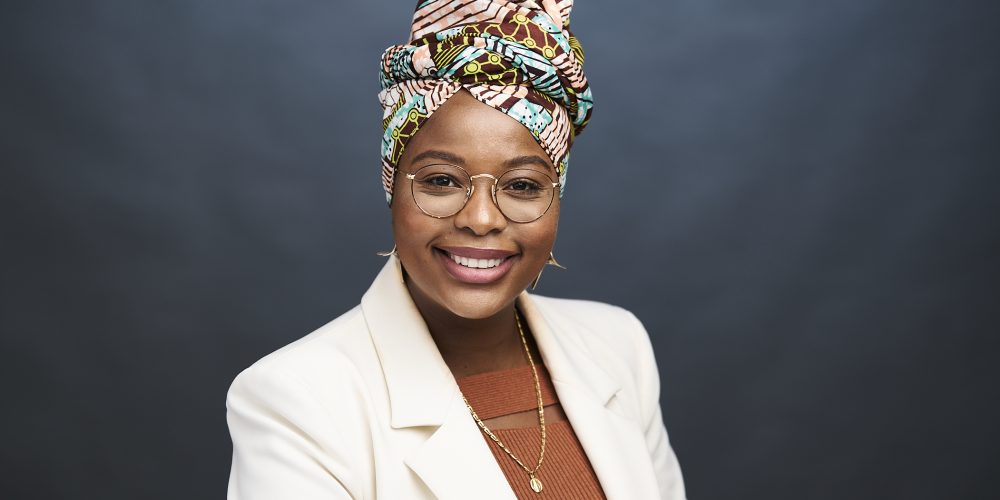by Sabrina Khaleque
Cátia Dombaxe, who was raised in the Southern African country Angola, is now a Ph.D. candidate in biomedical engineering at Cornell University. Her roots, along with her perpetual hunger for learning and experimenting, inspired Dombaxe to start Nakwaha Beauty, a skincare line targeting hyperpigmentation in black women.
Nakwaha Beauty is a brand focused on remedying hyperpigmentation and scarring that occur due to the excess production of melanin in women of color. As a black woman, Dombaxe herself has struggled with this problem.
“In Angolan traditional language, Nakwaha means love,” said Dombaxe. “My mission is to hear many black women come to me and say, ‘I used to struggle with skin hyperpigmentation, but your product has helped me in the long term.’”
Growing up, Dombaxe observed people in her village using artisanal methods to extract ingredients from plants, which women would later purchase as skincare. Dombaxe aims to build upon this approach using her background in chemistry and biomedical engineering.
“Since I always loved science, I wanted to have a science-driven cosmetic solution,” she said.
When she entered Cornell to pursue her research on spinal cord injury and tissue regeneration, the idea for Nakwaha Beauty came alive. Dombaxe thought of creating a hydrogel, with certain regenerative properties, that will deliver plant extract to the human skin and safely and effectively decrease hyperpigmentation.
“I chose the name as a way of giving back to my community — giving back to the farmers who will help me obtain the plants and the active ingredients,” she said. To achieve this, Dombaxe employs farmers in Angola to source the essential plant material used in their products.
Along with help from her hometown, Dombaxe also receives help from her second home, the Cornell community.
“Entrepreneurship at Cornell has been wonderful to me,” Dombaxe said.
The first entrepreneurial initiative she was part of was W.E. Cornell, a program that helps Ph.D. students and postdocs bring their innovations to market and navigate the challenges of growing a business.
“Before W.E. Cornell, I didn’t know anything about business,” she said. “I was just a scientist. W.E. Cornell helped me extensively to know business terms and be well-informed.”
Dombaxe acquired many valuable entrepreneurship skills from W.E. Cornell, including delivering her first public pitch. The most invaluable aspect, though, was learning about the significance of customer discovery — a methodology to evaluate an innovation’s product-market fit based on customers’ needs.
This encouraged her to participate in an NSF I-Corps Regional Course, where she focused on market research to discover the specific needs of her target customers.
Currently, Dombaxe is participating in the Life Sciences Technology Innovation Fellowship at Cornell, a program supported by SC Johnson College of Business that connects life-science researchers with MBA students to collaborate on real-world startup creation.
Dombaxe also mentioned the mentors she met through these programs — Andrea Ippolito, Greg Ray, and Sara DuBois. “They all helped me in different ways, but the most beautiful thing they helped me with was giving me a sense of belonging. They empowered me to pursue a lot of my dreams.”
As a young girl in Angola, Dombaxe always had an enthusiasm for education, especially science. This passion eventually led her to achieve a full scholarship to United World College Maastricht in the Netherlands. After her time there, she moved to the U.S. to earn her bachelor’s degree in chemistry from Methodist University and then came to Cornell for her Ph.D.
Dombaxe’s dynamic journey exposed her to several cultures worldwide, making her realize that she wants to have an impact on underserved communities. Therefore, along with her business, she also founded a non-profit called Comunidade Ubunye.
“I am creating a non-profit to help provide quality STEM hands-on education to underserved communities in Sub-Saharan African countries,” Dombaxe said. She is making STEM kits similar to experiment kits and teaching educators in those countries how to use them effectively. As certain schools in Africa lack adequate scientific resources, these kits will provide students with essential hands-on laboratory experience.
Despite navigating the challenges of being a research student and the founder of both a startup and a non-profit, Dombaxe’s ambitions continue to expand. She shared her goal for the future of her skincare line, stating, “My vision for Nakwaha Beauty is to watch it grow and be acquired by L’Oréal.”
Supported by a grant from the President’s Council of Cornell Women (PCCW), this story is part of a series focused on celebrating and encouraging Cornell women and non-binary individuals in entrepreneurship.






